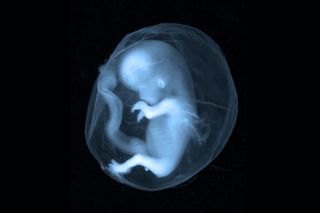
Complaint to Child Rights Commission Puts Spotlight on Sex‑Selective IVF
An IVF process for genetic screening is being misused for illegal sex selection.

A complaint made in March to the Maharashtra State Commission for Protection of Child Rights is gaining momentum, putting sex-selective IVF practices in the spotlight.
Shubhangi Bhostekar, a resident of Mumbai, has alleged that her husband, without her knowledge, hired a surrogate who, through sex selection during a pre-implantation process to screen for genetic abnormalities, gave birth to a baby boy late last year. Bhostekar has two daughters, aged 14 and 5, with her husband; she also alleges previous forced abortions in pursuit of a male child following the birth of her second daughter, and that all three of them were kicked out of the family home before the birth of the boy. Jaslok Hospital, which facilitated the surrogacy, refutes the accusation, saying it was impossible to determine fetal sex at the stage at which the fetus was transferred to the surrogate’s uterus.
The child rights commission referred the complaint to the Maharashtra state government for investigation; currently, per Scroll.in, “the police have referred the matter to a medical board, consisting of government doctors, for expert opinion, Senior Police Inspector at Mulund station Shripad Kale said.”
The IVF process in question is called a Preimplantation Genetic Diagnosis (PGD). The screening has been in use for decades, and is intended to screen for genetic viability, but is often misused to illegally predetermine the sex of the fetus, experts say. In the report, writer Priyanka Vora cites ‘a study conducted in Iran, where PGD is widely used for gender selection, found that it was ‘100% successful in achieving the desired sex.'”
Experts have been aware of PGD’s potential (and use) in assisting sex selection for nearly two decades. Arguments have been made in favor of banning the procedure, and in favor of legalizing and regulating sex selection, yet no law has been passed. Pertinent to this case, though not to all cases involving PGD-assisted sex selection, India also lacks any kind of enforceable regulation of the surrogacy industry, creating two glaring legal gaps that contribute both to the widening of the country’s already-skewed gender ratio and the exploitation of women.
Vora’s article ends with a call for regulation from public health and bioethics researcher Amar Jesani: “The Bill to regulate assisted reproductive technology was never introduced in Parliament,” said Jesani. “And without regulating the ART industry, having a bill for regulating surrogacy is not enough.”
Indeed, it’s questionable whether the proposed bill on surrogacy is enough even to regulate that industry. What India needs is a national discussion of bioethics, similar to the discourse France just engaged in, which can then inform comprehensive and forward-looking regulation of the assisted reproduction industry.
But before engaging in that, there needs to be a national and individual reckoning of what constitutes an ideal family, and how far parents should be allowed to go to achieve that vision. Despite Beti Bachao, Beti Padhao and years of programs of that ilk, India’s population is missing 63 million girls who should have been born over the past three decades, but weren’t, due to sex-selective practices by parents. In a family with two daughters already, is it wrong to want a son? After all, the sum total already does its bit to contribute to leveling the gender disparity. And Vora quotes an infertility specialist who notes that many couples who come to her asking to select the sex of a second child are seeking a girl.
But, the fact that parents are starting to request female children is soured by stories like Bhostekar’s. It’s difficult to get excited that girls are wanted as second children, when they’re still not valued as first or only.
Liesl Goecker is The Swaddle's managing editor.
Related


Zero‑Calorie Artificial Sweeteners Linked to Diabetes, Obesity
